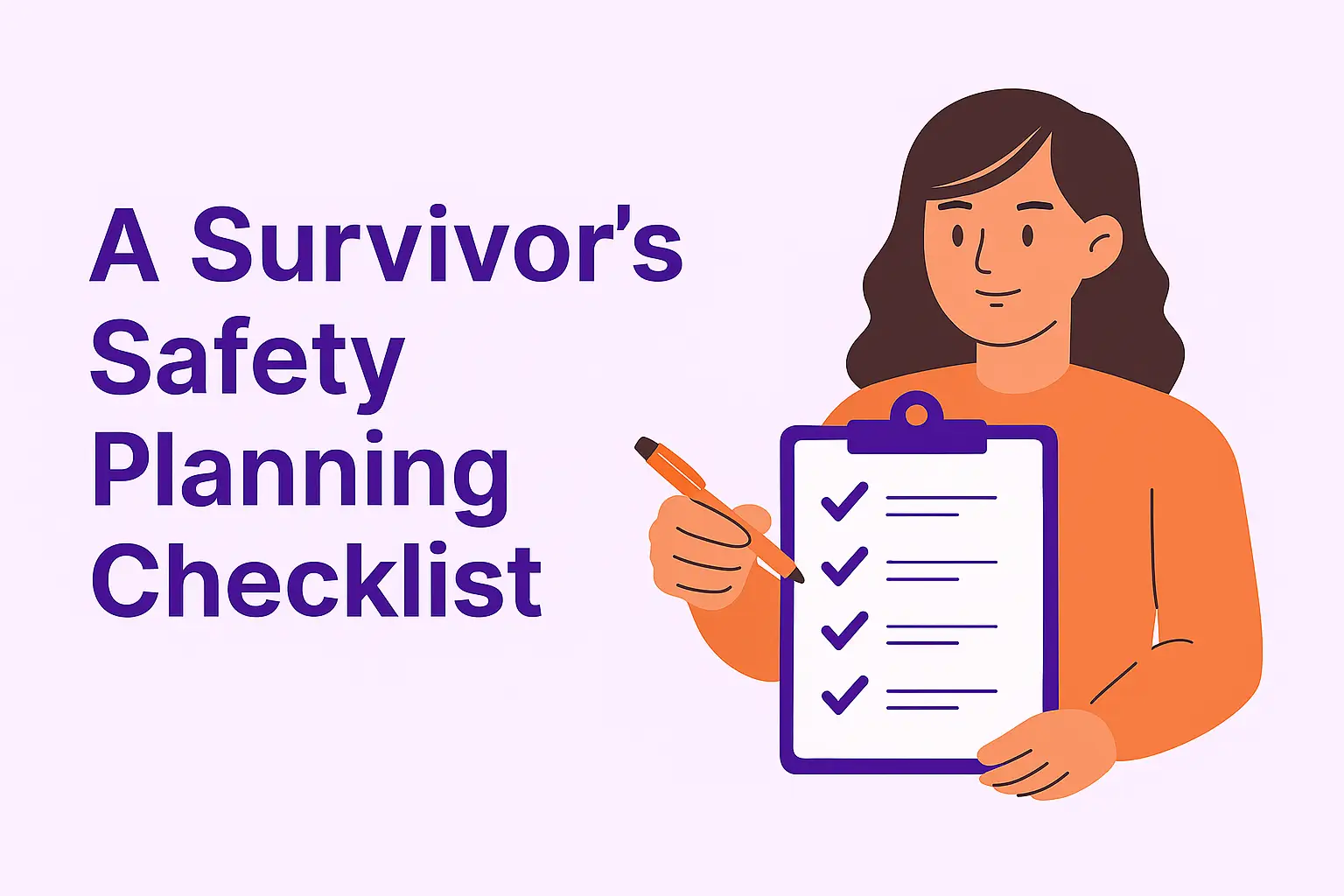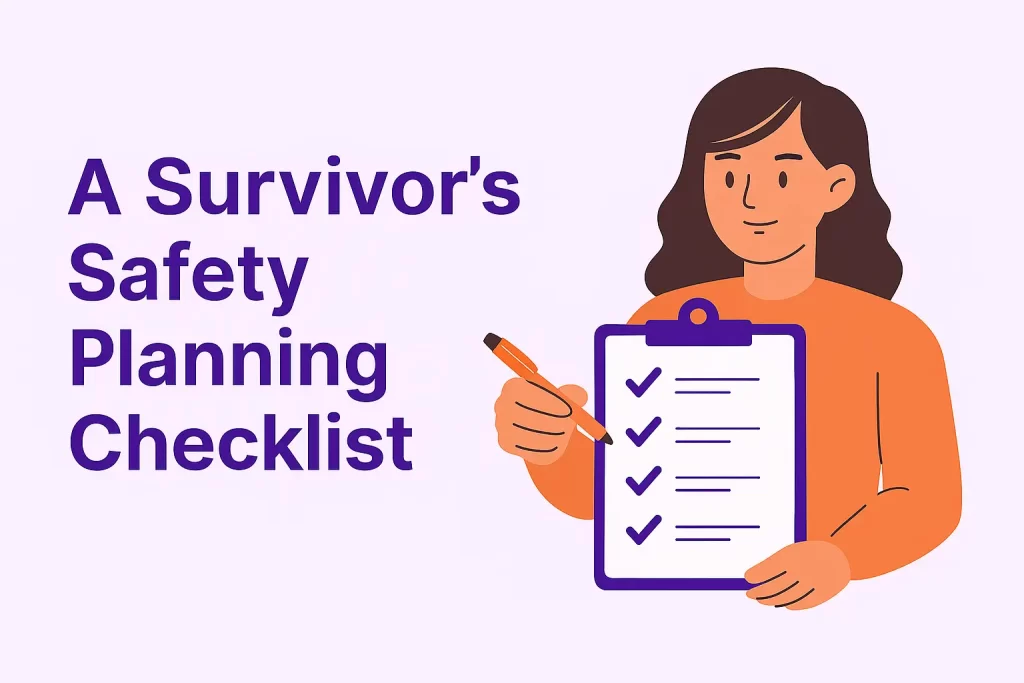After experiencing sexual assault, use this checklist to take small, practical steps that can help you feel more secure. Choose what works for you. There’s no ‘one right way’ to make a safety plan.

Download the Safety Planning Checklist
A simple, practical guide to help you take steps to stay safe and supported after sexual assault.
Download PDFImmediate Steps
- Identify one or two trusted people you can call at any time.
- Save hotline numbers in your phone or write them down (e.g., RAINN @ 800-656-HOPE).
- Consider if you need a safe place to stay short-term (friend, family, shelter).
Personal Safety Planning
- Keep a spare set of keys, cash, and important documents in a safe place.
- Pack a small “go-bag” with essentials (clothes, medications, charger) if you may need to leave quickly.
- Share your plan with one trusted friend, but only if you feel comfortable.
Digital & Online Safety
- Change passwords on email, social media, and financial accounts.
- Adjust privacy settings so only trusted contacts can view your posts.
- Document and save screenshots of harassing or threatening messages.
Legal & Protective Options
- Learn about restraining orders or protective orders in your state.
- If you are working with an attorney, share your safety concerns with them.
- Ask law enforcement about victim assistance programs if you file a report.
Self-Care & Support
- Write down coping strategies that help you feel calmer (breathing, grounding exercises, journaling).
- Keep the contact info for a counselor, advocate, or support group handy.
- Remind yourself: Needing help is normal. Safety planning is not about weakness, but strength.
Your safety plan is unique to you. Update it as your situation changes. Even taking one step can make a difference.
